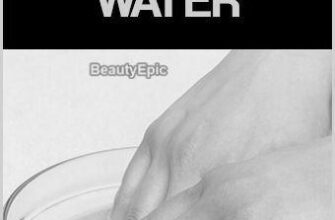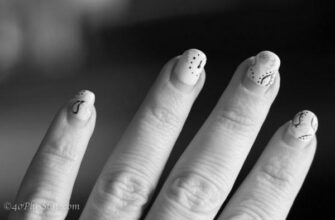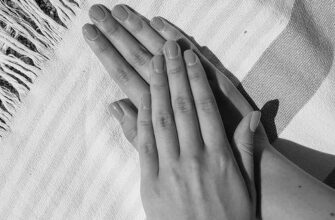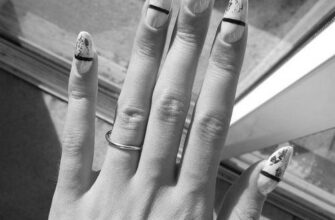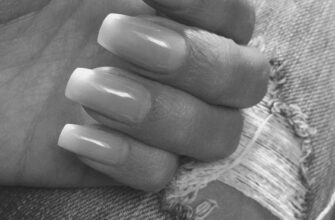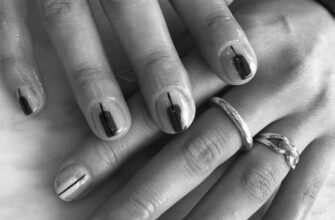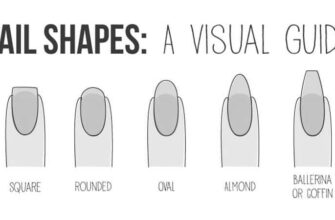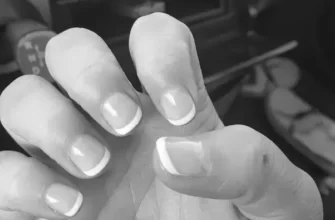Do Nails and Hair Grow Faster As One Ages?
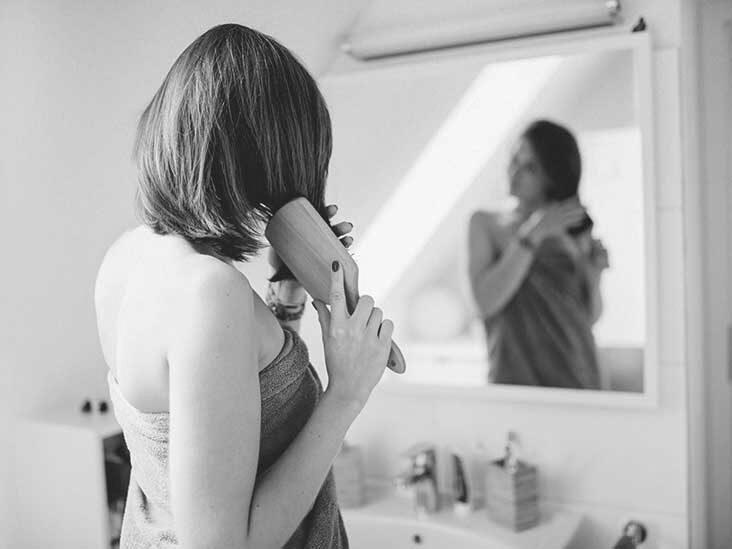
This article will discuss what factors influence nail and hair growth as we age. We’ll also discuss some signs that aging may be affecting our nail and hair growth. Read on to discover why you may be experiencing slow growth in your hair and nails. The answer might surprise you! So, how do you know if your nails and hair are slowing down? Keep reading to learn more.
Factors that affect nail growth
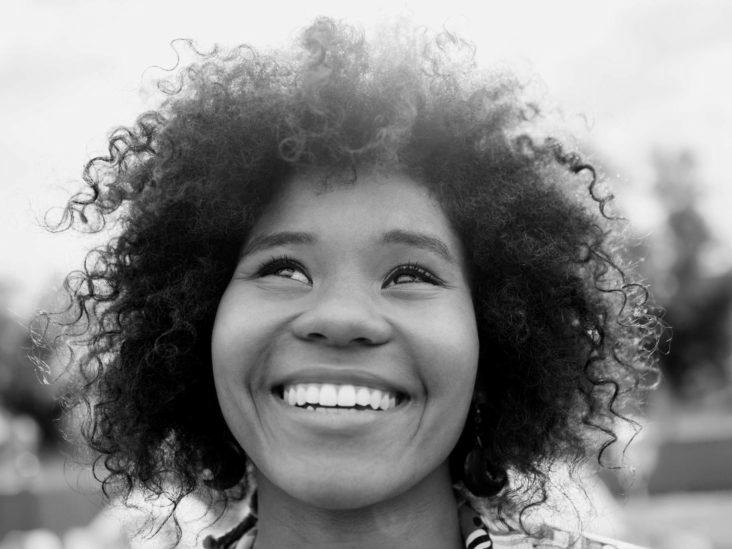
The rate at which the nails grow is affected by several factors. Among them, poor nutrition and mineral deficiencies slow down the growth of the nails. Age itself has a strong effect on the development of the nails, but there are other causes. Improper care of nails can also slow down the growth process. Here are some tips on how to accelerate nail growth. In addition to good nutrition, you must also avoid trauma and chemicals.
The age at which the nails grow varies from individual to individual. Growth of the fingernails reaches a peak at about three millimeters per month when one is in their early twenties. After that, the growth rate slows down to less than 0.5 percent a year. This slowing down of nail growth can affect the quality and color of the nails. While most people do not notice it, women may notice changes in their fingernails as they age. Some men experience this same problem in their late forties and beyond.
The change in nail growth is typical and expected with age. It may occur spontaneously or result from an underlying disease, such as a virus or infection. The underlying mechanisms are unclear, but they may be related to impaired blood circulation at the distal extremities or ultraviolet rays. Your primary care physician will be able to recognize the signs of age-related nail changes and can refer you to a specialist if necessary.
Apart from age-related causes, other factors that affect nail growth as one age include smoking, excessive use of creams, and improper nutrition. In some cases, the onset of these conditions may result from a simple lifestyle change. For instance, if one smokes or wears nail polish regularly, his nails may develop a dark strip under the nail. This condition is usually harmless, but in some cases, the deterioration of the nails could indicate serious health issues.
While nails grow slower than those of other body parts, the growth of the fingernails is affected by hormonal levels. Hormone levels are in the highest demand during puberty when they spike and drop. Fortunately, the hormone levels begin to balance as a person ages. Certain chronic conditions, such as diabetes, can affect the growth of the nails. These conditions may result in irregular growth, decreased luster, and diminished overall health.
Changes in nail growth as one age
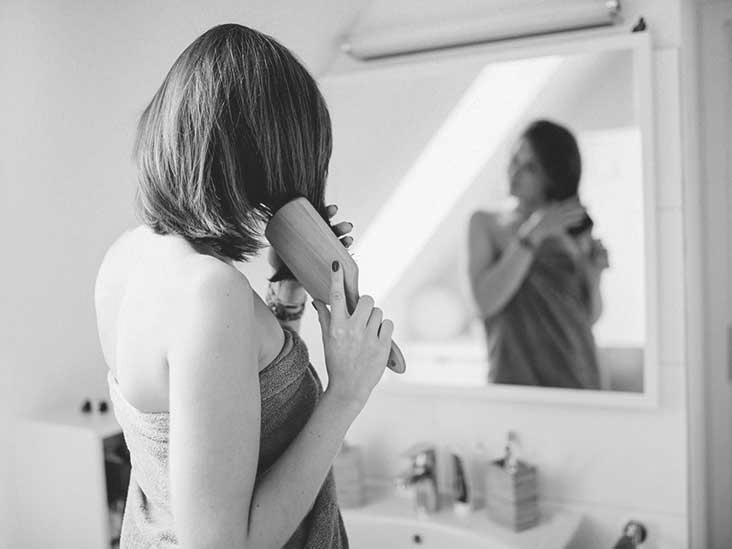
As one age, their nails undergo several changes. They may become more rigid and thicker or brittle and paper-thin. These changes can be caused by various factors, including internal body processes and external factors such as ultraviolet light and chemicals. These changes can affect the growth rate, thickness, shape, and color of a person’s nails. Often, repetitive wetting and drying of the hands and feet can accelerate the process of brittleness.
In addition to the physical changes that affect the nail, the esthetic aspects of one’s nails may also be affected. Older people are at higher risk for developing nail disorders, which can interfere with their activities of daily living. Because their nails play a significant role in social interactions, it is crucial to recognize these disorders. This knowledge can help minimize the psychological impact and improve the quality of life of the afflicted.
Although elderly individuals often have healthy fingernails, noticing changes can also signal a variety of health concerns. For example, sudden changes in the appearance of one’s fingernails may signal the need for further medical attention. The first step in addressing a patient’s health concern is visiting a doctor and determining if there is a severe underlying problem. Various tests can help determine whether one is suffering from an underlying disease.
Identifying and diagnosing changes in nail growth as one age is the first step in treating the condition. The primary care physician should be familiar with the various nail abnormalities related to age. Using the latest diagnostic tools and assessing the patient’s general health may help the physician make a proper diagnosis. If a patient has any concerns, the primary care physician may refer the patient to an appropriate specialist.
Symptoms of slow nail growth

In some cases, brittle, slowly growing nails indicate a medical condition. A simple physical examination may reveal a fungal infection. The treatment for this condition usually involves taking an over-the-counter or prescription antifungal medication. If the condition persists, nail surgery may be necessary to restore proper nail growth. Another possible underlying cause is anemia, which can lead to brittle nails.
Another cause of slow nail growth is the improper use of nail files. It is essential to use a gentle file not to damage the nail. Avoid using harsh filing tools. If you use too many nail files, you can damage your nails and slow their growth. Maintaining a balance between soft and hard pins is essential. A file misused can cause your nails to become weak and ineffective. Use a file with a gentle but firm grip for best results.
If the nail is yellow, it may signify a serious medical condition or a lifestyle change. Many people mistakenly assume that this symptom is caused by smoking or the frequent application of nail polish. Other signs of a more severe problem include thick, brittle, or missing cuticles. The nails may even become spoon-shaped. If your nails are yellow, they may be brittle or detach from the bed, a condition known as koilonychia.
Slow nail growth can be a symptom of an underlying medical condition or an age-related deficiency. However, it is possible to speed up the process if you are diligent about your nail hygiene. Also, some people suffer from hypothyroidism, which may cause the problem. Fortunately, these are not permanent conditions. Keeping your nails healthy is the best way to promote healthy nail growth.
A classic symptom of habit tic deformity is a yellowish nail without cuticles, fortunately, by simply stopping the cuticle manipulation habitually.
Signs of slow hair growth
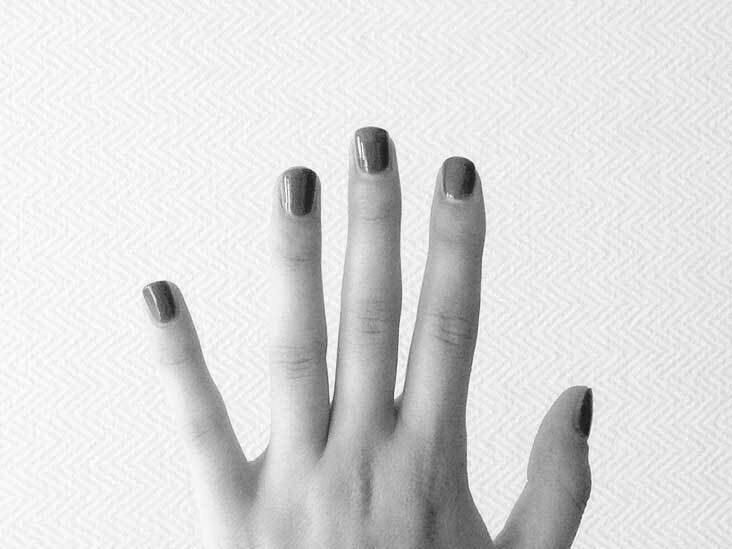
As a person ages, their body starts to sluggish down, and so does their hair growth. At the same time, several causes of this slow hair growth, genetics, and hormonal fluctuations play a significant role. By 50, 85% of men have significantly thinner hair, and 40% of women deal with noticeable bald spots. Similarly, wound healing slows down, and their ability to fight infection also decreases as they age.
How to Have Healthy Nails
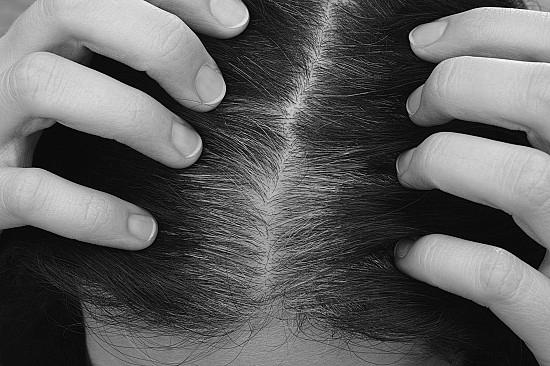
If you want to have strong, healthy nails, you should follow these tips. Avoid harsh chemicals, eat foods rich in protein, and avoid nail-bitingly. You can also prevent dehydrating your nails by drinking water instead of soda. Taking care of your nails is a lot easier than you think. Here are some things you can do for stronger, healthier nails:
Keep them hydrated
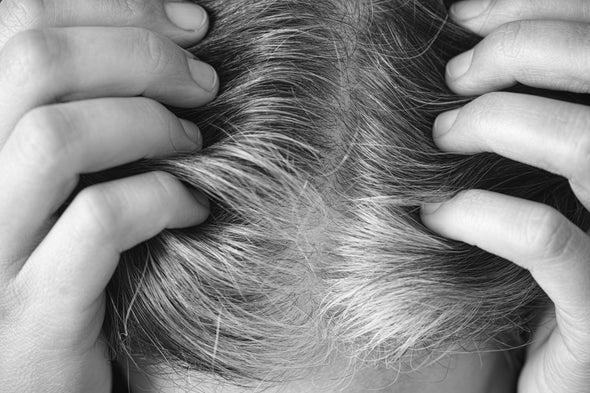
If you want to keep your nails looking beautiful and healthy, you should drink plenty of water. Apart from drinking water, you can also eat foods with high water content. For example, watermelon is 92% water by volume. Cucumbers also have the same effect. In addition to drinking water, you should also use hand cream to keep your hands and nails moisturized. Keep reading for more tips to keep your nails healthy and beautiful!
Keeping your nails moisturized is vital for your overall health. Dry nails are prone to cracking and chipping. They may also break under even the slightest pressure. Therefore, it is essential to drink more water to prevent these problems. You can also protect your nails by wearing cotton-lined spa gloves when you wash your hands and avoid taking hot baths or showers in steamy environments. Biotin is a good choice for strengthening your nails.
In addition to drinking water, you should avoid harsh chemicals and nail polish removers that can weaken your nails. Always trim your nails regularly. Keeping them neat and clean will help prevent them from breaking. Also, avoid using harsh nail polish removers with acetone as they can weaken your nails. Avoid applying nail polish to your fingernails whenever possible. You can keep your nails looking beautiful and healthy by following these tips.
Avoid harsh chemicals
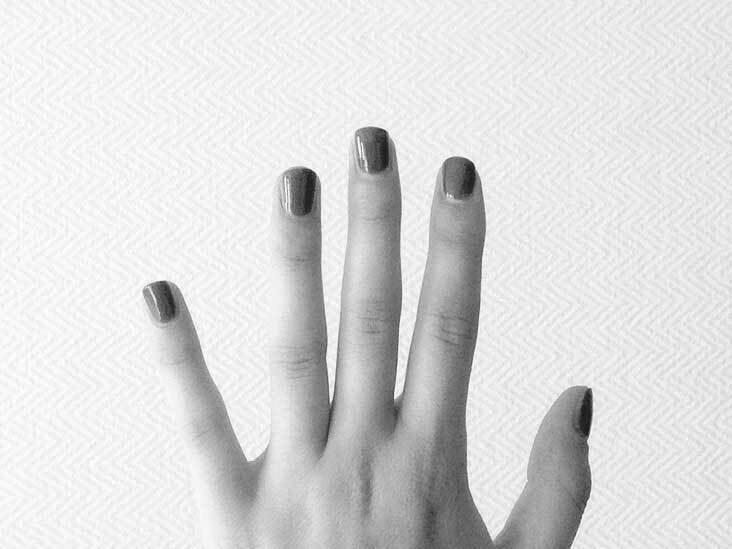
If you’re interested in healthy nails, you might want to avoid the use of harsh chemicals. Some nail products contain toxic chemicals to the body, such as embalming fluid. This chemical is banned in the European Union, but it is still used in nail salons. To learn more about the chemicals, you should avoid, check out OSHA’s resource on the toxic chemicals used in nail salons. It provides information on the most common toxins and their health risks.
Another chemical to avoid is phthalates, which harden and soften plastic. Although research on these substances is limited, they have been linked to rodents’ respiratory, eye, and developmental problems. In mice, phthalates can cause congenital fetal disabilities and decrease the number of viable litters. Humans can cause reproductive problems and are highly toxic. Listed below are some of the most common phthalates used in nail polish.
Taking care of your nails with various methods will ensure that they stay healthy and beautiful for a long time. Drinking adequate water will help keep your nails moist while taking a multivitamin with minerals can also help. To avoid using harmful chemicals in nail products, you should avoid using acetone-based nail polish remover. While nail polish remover can make your nails more robust, it’s essential to avoid these chemicals.
Eat protein-rich foods

You can quickly improve the health of your fingernails by eating protein-rich foods. Besides building strong muscles, protein helps your nails grow. To improve the health of your fingernails, you should include lean chicken, fish, and beef in your diet. It would help if you also ate plenty of fruits and vegetables, such as bananas, papaya, and avocados. These foods are excellent sources of vitamins and minerals.
Another way to make your nails stronger is to eat plenty of colorful fruits and vegetables. Tomatoes, for example, are a good source of vitamin C, which helps in collagen production. Carrots and sweet potatoes are rich in vitamin A, which provides antioxidants. All of these foods are good for your nails. Eat them at least three times a week. Avoid seafood with high mercury levels, as it can weaken your nails.
Beans are another great source of protein. Eat these foods before sushi for a tasty appetizer. Beans contain:
- Cysteine.
- A necessary amino acid in the production of keratin.
- The main building block of nails.
Additionally, edamame is rich in folate, a nutrient needed for nail cell production. You can prepare a delicious salsa out of these foods. You can add chili powder to spice it up.
Avoid nail biting
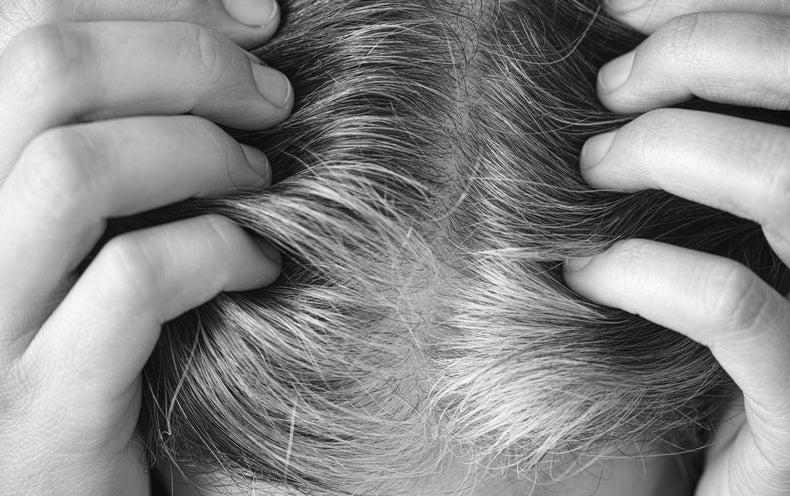
There are many ways to stop nail-biting, including habit reversal training and replacing your current behavior with new, healthier ones. It begins by practicing awareness, without judgment, of when you bite your nails, then reflecting on the internal and external factors that may cause you to do it. Once you’ve identified these factors, you can start modifying your behavior to avoid them in the future. You can also keep a running log of when you bite your nails to help you track the patterns.
You need to understand what triggers the habit and develop a new, healthier response to stop nail-biting. If you find yourself thinking about nail-biting, make a list of the thoughts that trigger you to do it. You can use these to replace it with something else, such as a different type of activity. Identifying the triggers will also help you learn to identify alternative behaviors when the habit does occur.
If you do bite your nails, file them away afterward. Be sure to file away the jagged tips, but avoid sawing with a file. It can cause damage to your nails. Instead, buff the nail in one direction. As much as possible, avoid nail-biting to prevent nail infection. If you cannot avert nail-bitingly, try eliminating triggers and learning to live without them.
Stop biting
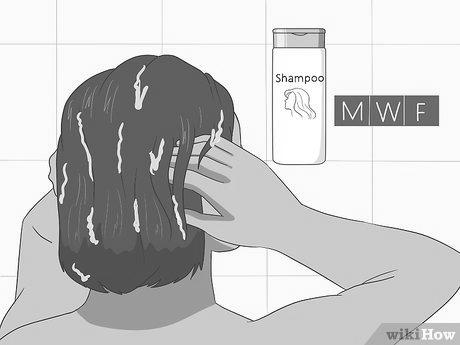
Getting out and exercising is an excellent way to reduce stress and anxiety and stop biting your nails. Exercise releases feel-good hormones such as serotonin, which can help you relax and relieve tension. Try cycling, tennis, or running to get into a routine that suits your lifestyle. By following this routine regularly, you will be able to tune into your triggers quicker and modify your behavior.
In addition to causing damage to your nails, nail-biting can also make you sick. Germs thrive on hands, and pins provide a haven for these microbes. By exposing yourself to germs and bacteria, nail-biting increases your risk of contracting diseases. It is also unhygienic, and many people do not wash their hands before they start nibbling their nails. Furthermore, these germs can quickly transfer from the hands to the mouth.
Cover your nails with gloves or press-on nail sets if you want to stop biting your nails. You keep your mouth busy by covering your nails and preventing yourself from engaging in this behavior. However, this may not be an effective solution for everyone. A gradual approach may work better for some people than others. For children, putting band-aids over their hands may be a good option. Alternatively, try using bitter-tasting nail polish on their fingers.
Drink plenty of water

Ample amounts of water are essential to the body, and your nails are no exception. Your body is composed of 50-75% water, and your nails need adequate water to stay healthy. When the water content in your body is low, your nails will begin to dry out, brittle, and peel. Water also helps prevent the cuticle from peeling. It can make your nails appear more attractive and maintain their strength. Drink plenty of water for healthy nails and enjoy beautiful, shiny hands.
A proper diet contains your body’s essential vitamins and minerals to maintain healthy nails. If you do not get enough protein from your diet, you may want to consider taking multivitamins. It is important to remember that multivitamins can interact with other medications, so you should speak with your doctor before starting any new vitamin or mineral supplement. Biotin is an essential vitamin that helps maintain the health of the nervous system and hair. Eggs are a good source of biotin.
Water is also essential for your skin. Staying hydrated keeps your skin and hair clear and prevents brittle nails. Additionally, staying well-hydrated will improve your overall health and improve your mood. If you aren’t drinking enough water, try to drink it during mealtimes or take a water bottle.

